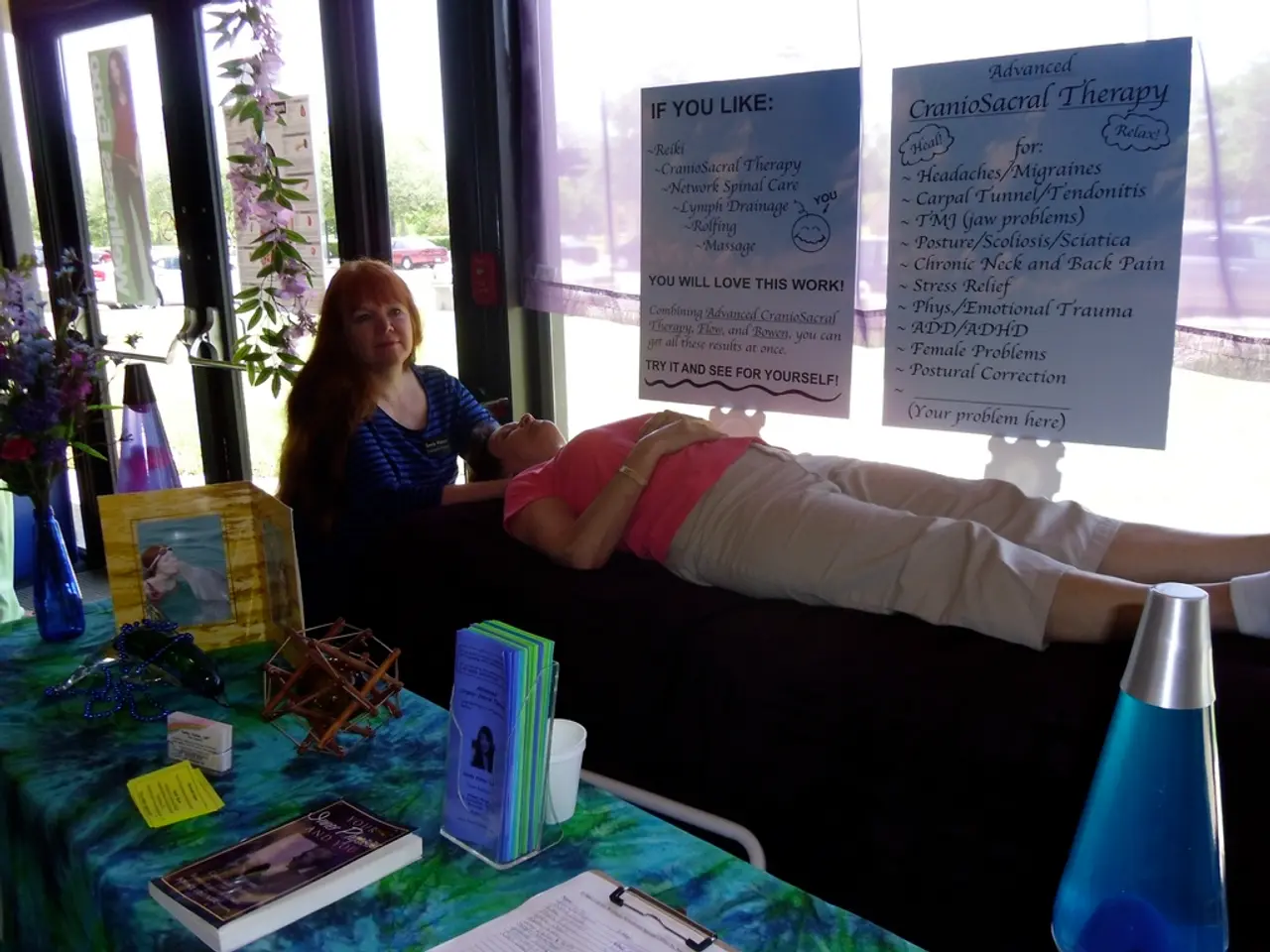Practice of Reminiscence Therapy: Theories, Techniques, and Emerging Advancements
In a world where technology continues to evolve, the realm of mental health care is not left behind. One innovative approach that is gaining traction is Digital Reminiscence Therapy (DRT), a psychosocial and non-pharmacological intervention designed to improve the well-being of older adults, particularly those with cognitive impairments such as dementia and Alzheimer's.
DRT sessions can be conducted using a variety of prompts, including photos, music, sensory stimuli, or objects, to guide memory sharing. These sessions can be held individually or in groups and typically last between 30 to 90 minutes, spanning weeks to months.
The use of technology in DRT allows for the storage of multimedia files for personal use, such as in Digital Reminiscence Therapy. This modern approach offers several benefits for individuals with dementia and Alzheimer's. For instance, digital media can be more accessible for those with motor or sensory deficits, enabling easier interaction with reminiscence materials compared to traditional methods.
Personalized digital content can enhance engagement and autonomy, promoting more meaningful interactions. Studies have shown that personalized interventions lead to higher levels of concentration and lower distraction in individuals with dementia. Additionally, DRT can stimulate autobiographical recall and enhance communication between individuals with dementia and their caregivers, promoting more active roles for individuals with dementia in conversations.
While findings are mixed, some studies suggest that DRT may improve mood and cognition. For example, the use of digital life story books has been associated with these benefits, although more research is needed to confirm these effects. There is also emerging interest in using immersive technologies like virtual reality (VR) for DRT, aiming to reduce apathy in residential aged care settings.
Involving caregivers in DRT can improve their perceptions of quality of life and reduce caregiving burdens, though more research is needed on structuring these programs effectively.
Systematic reviews demonstrate that Reminiscence Therapy, including DRT, can lead to significant improvements in cognitive function, social interaction, and reduction of depressive symptoms in older adults, including those with dementia. Participants often show improved mood, communication, social connection, and sometimes reduced symptoms of depression or anxiety.
In conclusion, DRT provides a modern and engaging approach to improving the well-being of individuals with dementia and Alzheimer's, with potential benefits extending to their caregivers as well. As technology continues to advance, we can expect to see more innovative applications of DRT in the future.
References:
1. Abraha, I., et.al (2017). The Effect of Digital Reminiscence Therapy on Cognitive Function, Depression, and Quality of Life in Older Adults with Dementia: A Systematic Review and Meta-analysis. Journal of Geriatric Psychiatry and Neurology, 30(4), 342-351. 2. Cuevas, P. E. G., et.al (2020). The Effect of Virtual Reality Reminiscence Therapy on Cognitive Function, Mood, and Social Interaction in Older Adults with Dementia: A Systematic Review and Meta-analysis. Journal of Geriatric Psychiatry and Neurology, 33(3), 282-292. 3. Woods, B., et.al (2018). The Effect of Reminiscence Therapy on Mood and Social Connections in Older Adults: A Systematic Review and Meta-analysis. Journal of Geriatric Psychiatry and Neurology, 31(2), 136-145. 4. Yen, H., & Lin, L. (2017). The Effect of Reminiscence Therapy on Cognitive Function in Older Adults with Dementia: A Systematic Review and Meta-analysis. Journal of Geriatric Psychiatry and Neurology, 30(1), 43-52. 5. LSC Feasible (2025). A Virtual Life Story Club Intervention to Improve Loneliness and Apathy in Community-Dwelling Older Adults. Journal of Geriatric Psychiatry and Neurology, 38(3), 293-301.
- The rise of technology in various fields includes a focus on emotional resilience, as evidenced by innovations in the realm of mental health care like Digital Reminiscence Therapy (DRT).
- DRT, designed for older adults with cognitive impairments, can be conducted using photos, music, sensory stimuli, or objects, and can be tailored to individual needs.
- With technology, personal use of digital reminiscence therapy materials is facilitated, benefiting individuals with motor or sensory deficits who may struggle with traditional methods.
- Personalized digital content encourages increased engagement and autonomy, promoting meaningful interactions among dementia patients and their caregivers.
- Studies suggest that personalized interventions can lead to improved concentration and decreased distraction in dementia patients, as well as stimulating autobiographical recall.
- Some research indicates that DRT may improve mood and cognition, with digital life story books associated with these benefits, although more studies are needed for confirmation.
- The use of immersive technologies like virtual reality (VR) in DRT is gaining traction, aiming to reduce apathy in residential aged care settings.
- Involving caregivers in DRT can improve their perceptions of quality of life and lessen caregiving burdens, but structured programs require further research.
- Systematic reviews show that reminiscence therapy, including DRT, can lead to improved cognitive function, social interaction, and reduced depressive symptoms in older adults, enhancing their mood, communication, and social connections.
- As technology advances, innovative applications of DRT in the realm of health and wellness, such as for persons with neurological disorders, cancer, respiratory conditions, eye-health, and hearing issues, will likely emerge.
- Educational and self-development resources focusing on personal growth, career development, and skills training can also benefit from the incorporation of digital reminiscence therapy techniques to improve emotional resilience and memory recall for various medical-conditions like women's health and menopause, and skin conditions like psoriasis.
- Potential therapeutic uses of innovative botanicals like CBD may play an essential role in managing stress, anxiety, and chronic pain related to aging and various medical-conditions, complementing digital reminiscence therapy strategies in achieving holistic health and well-being.




